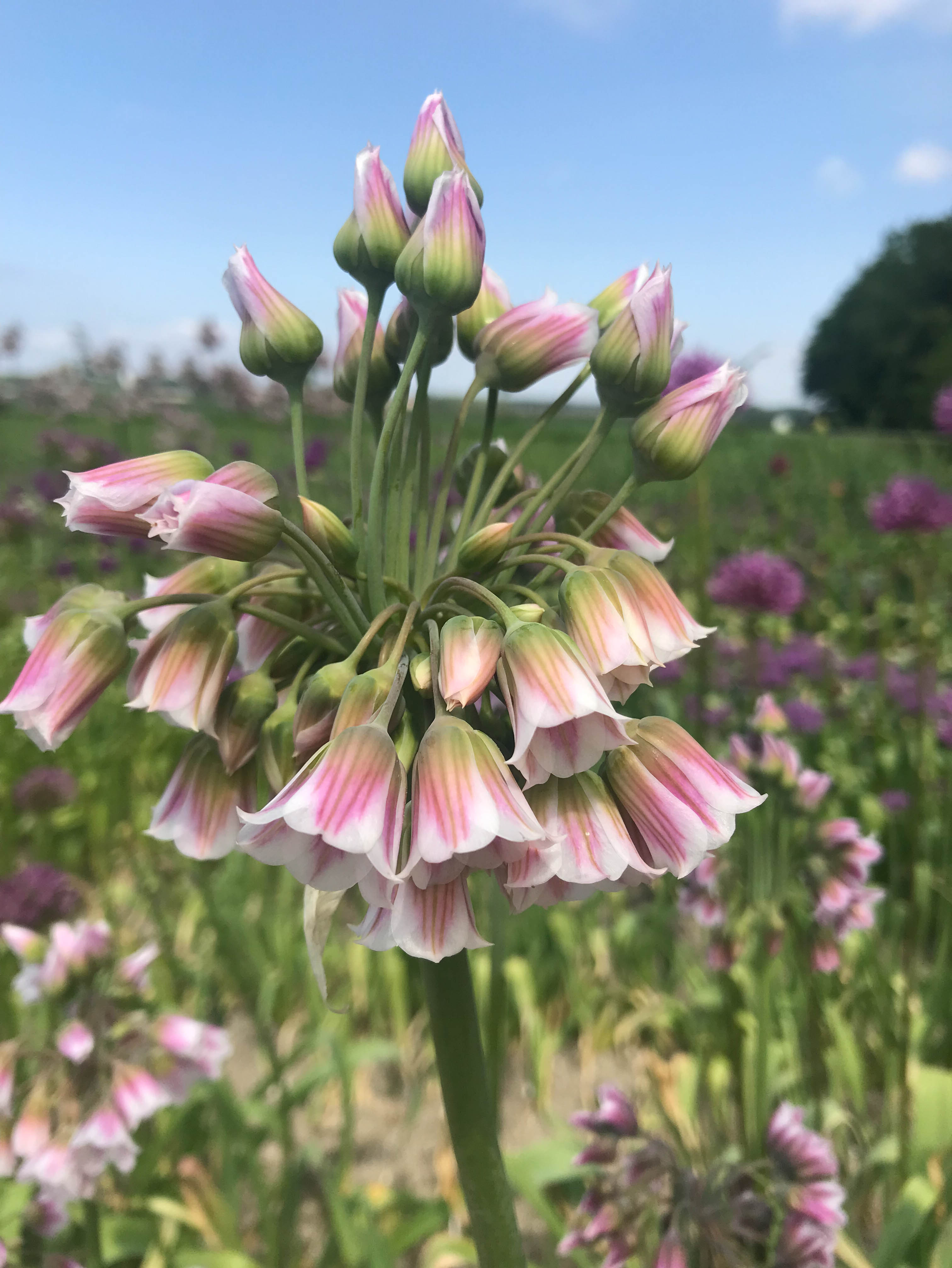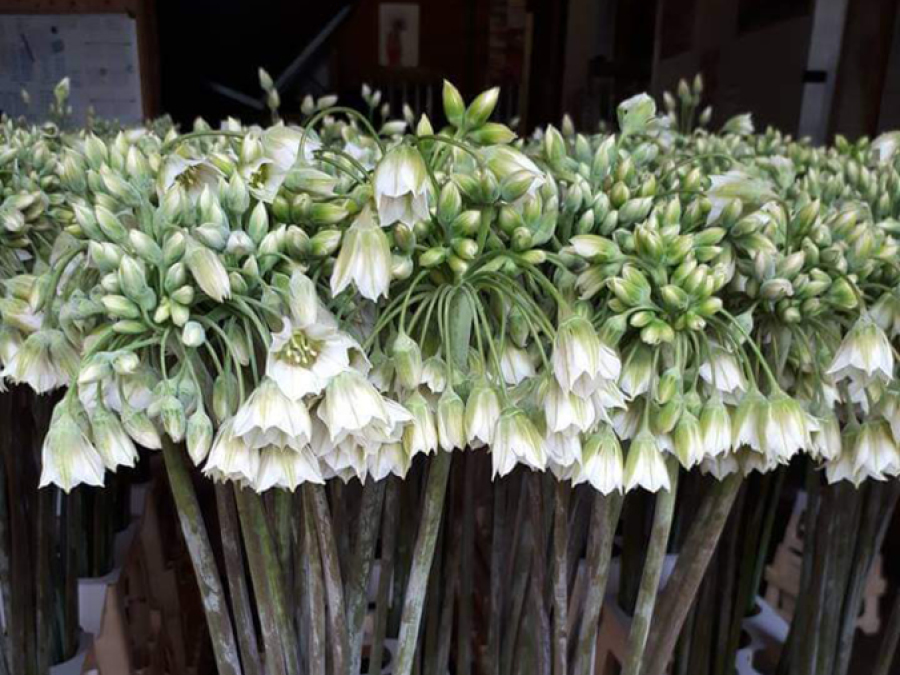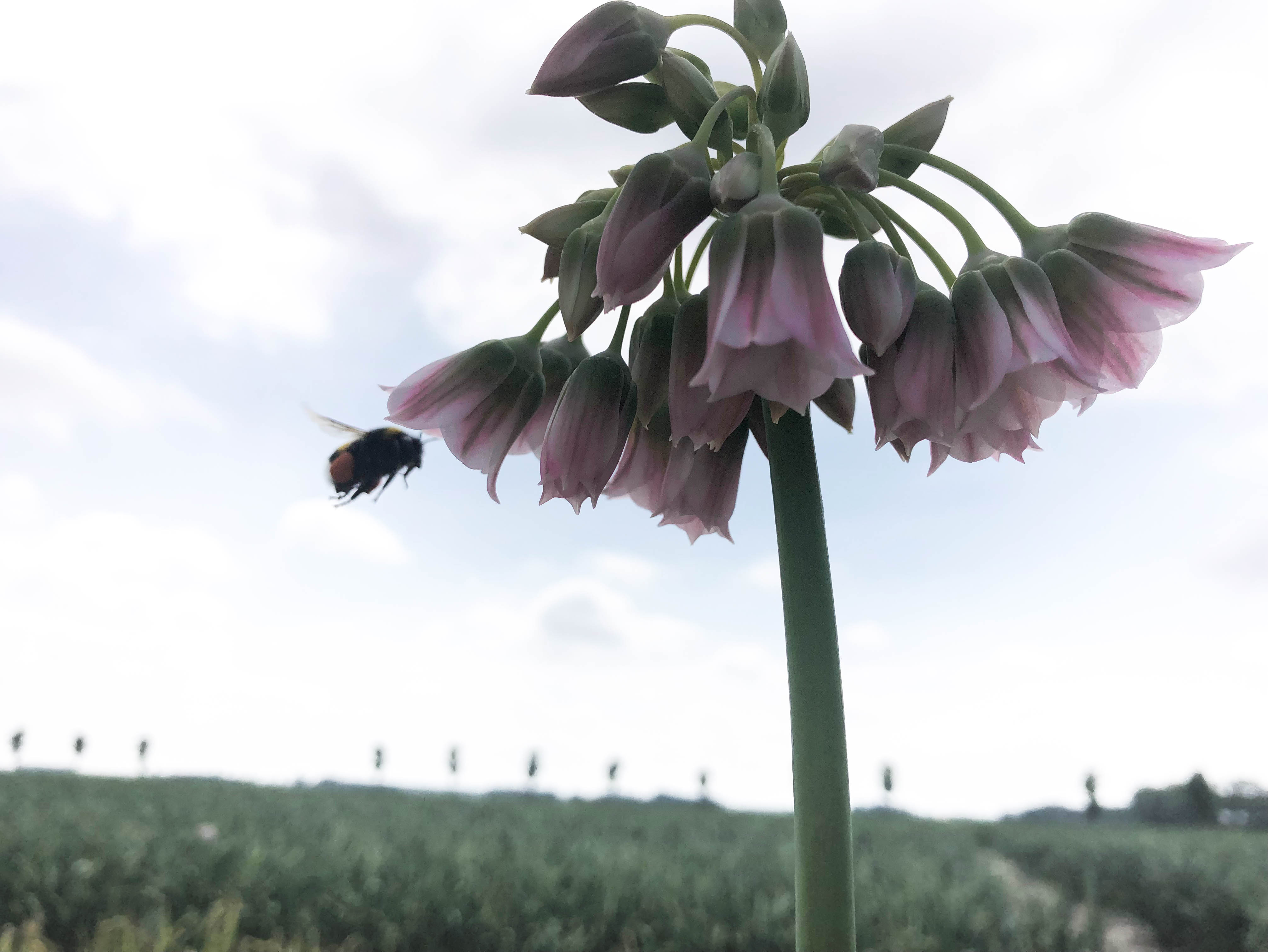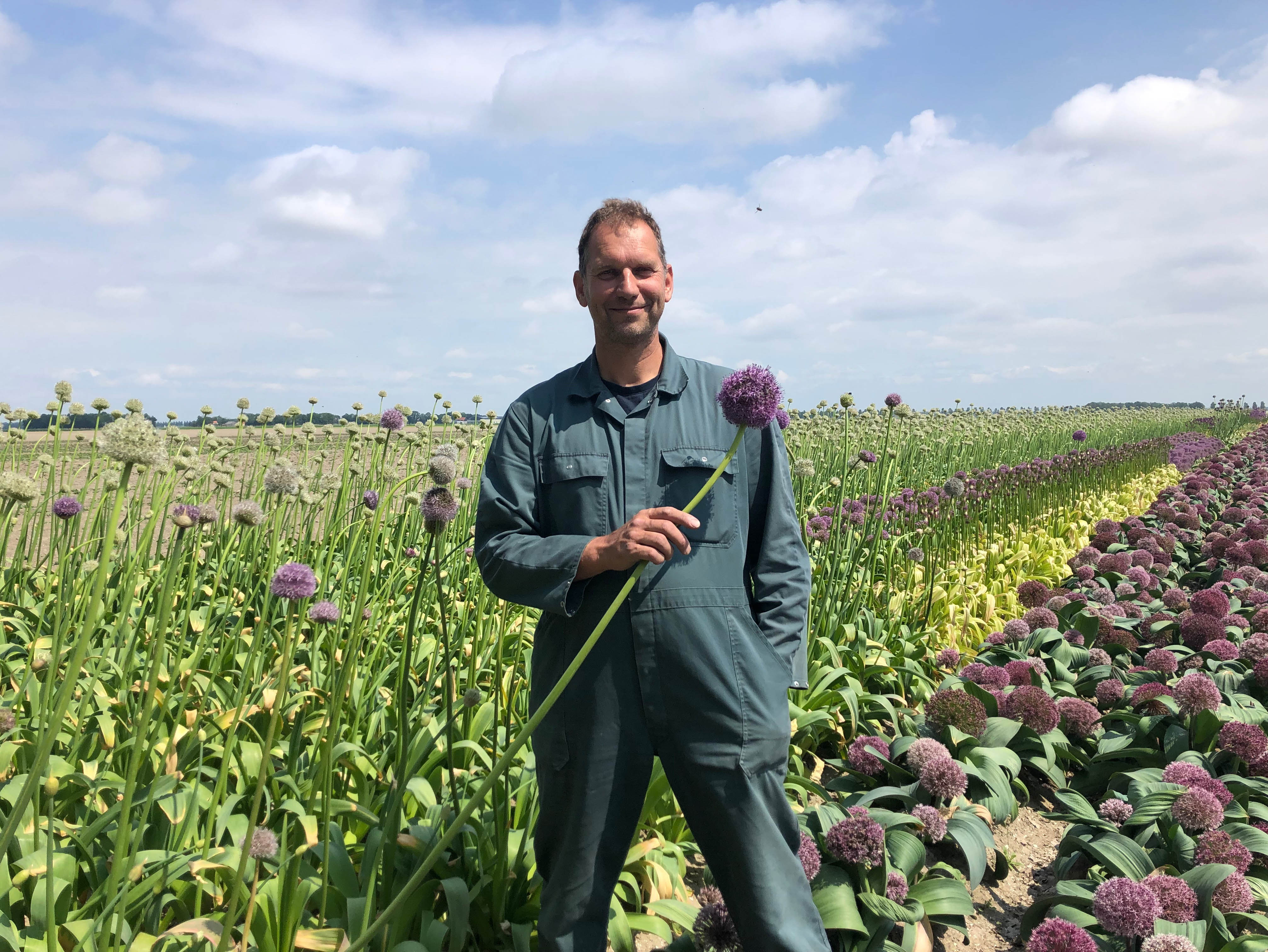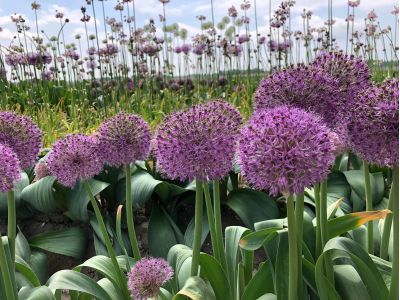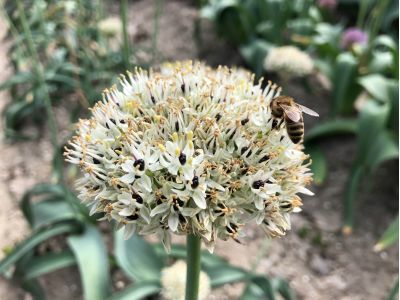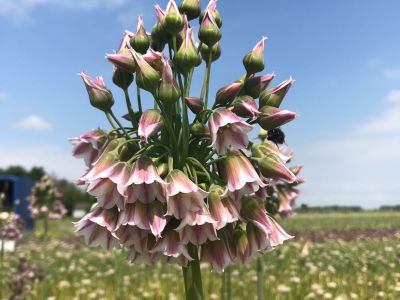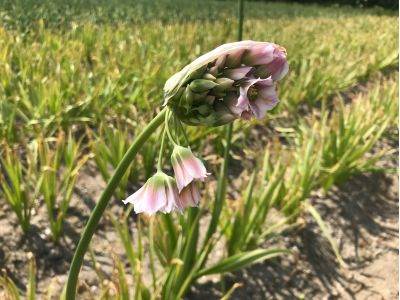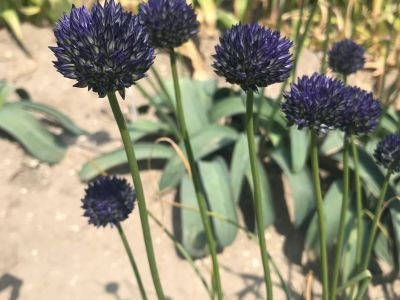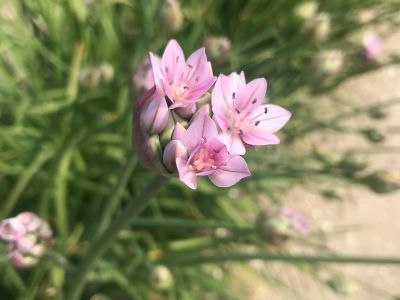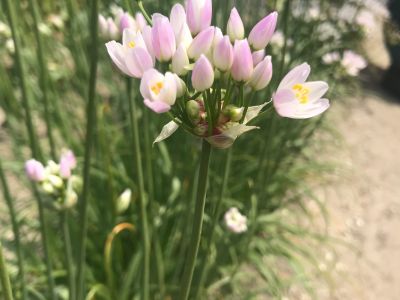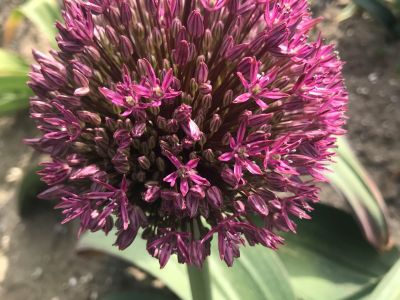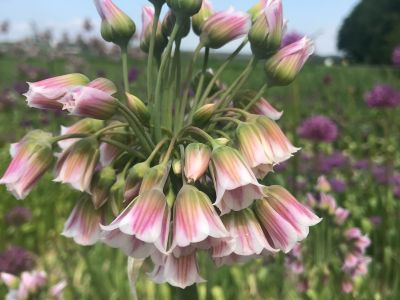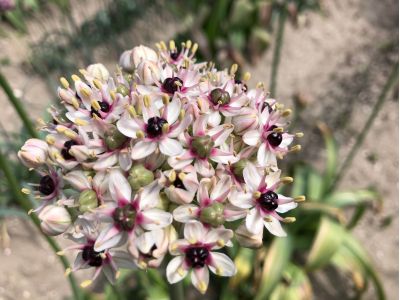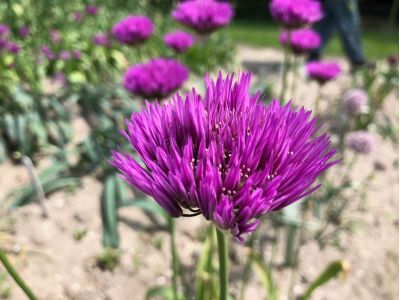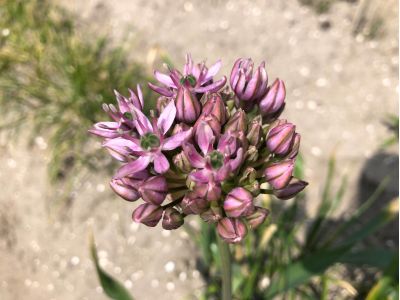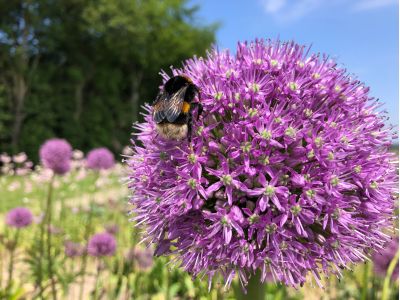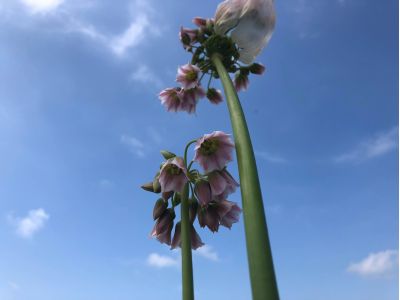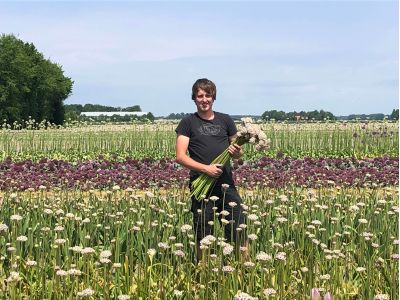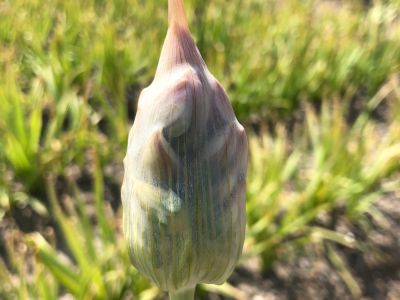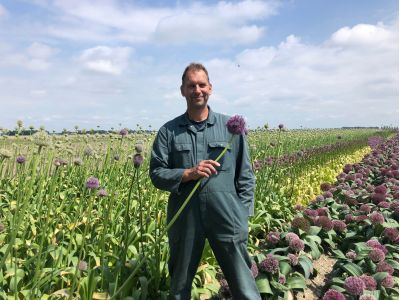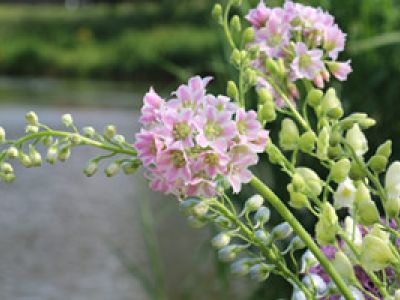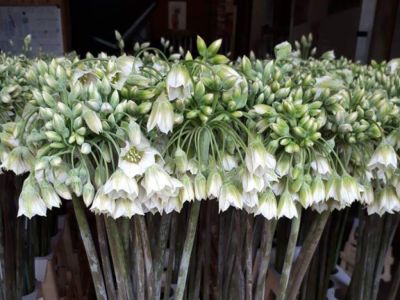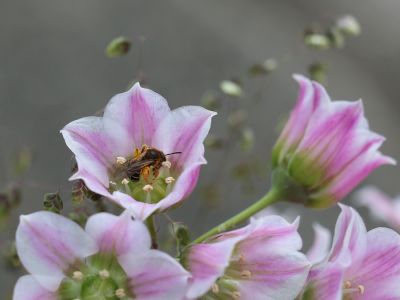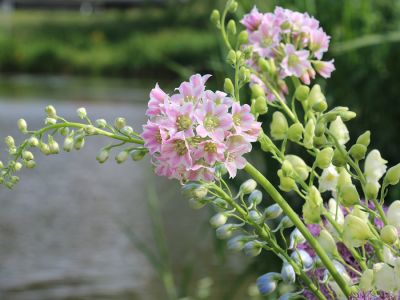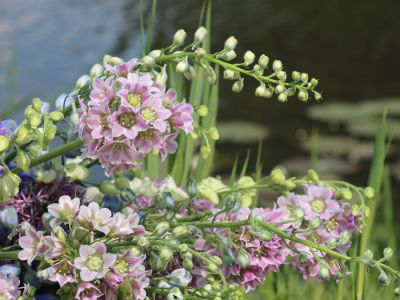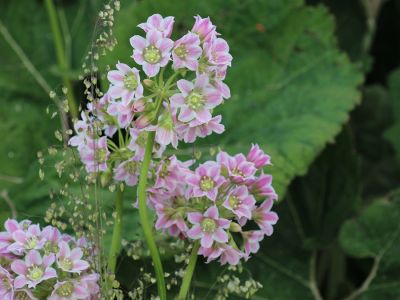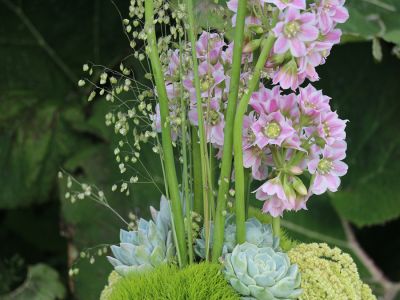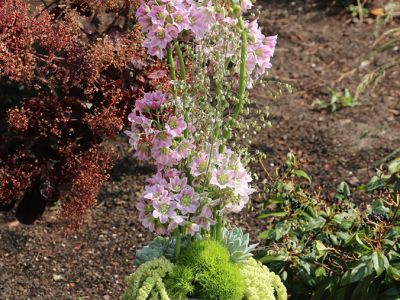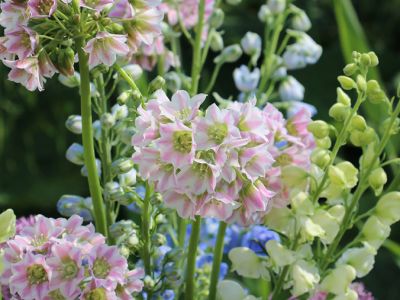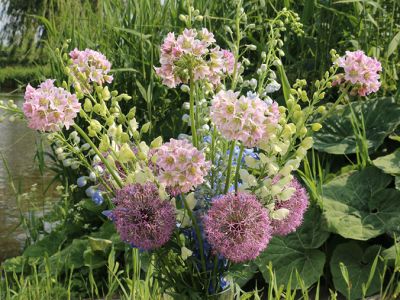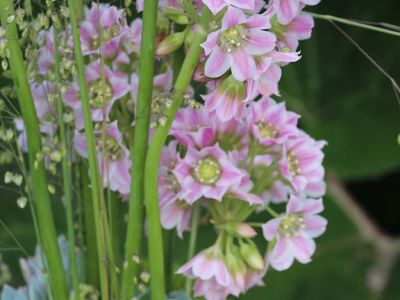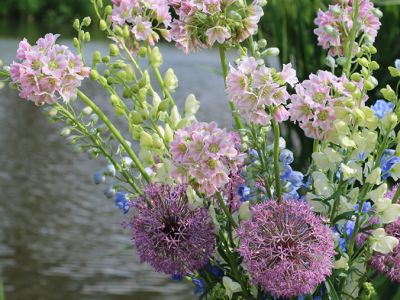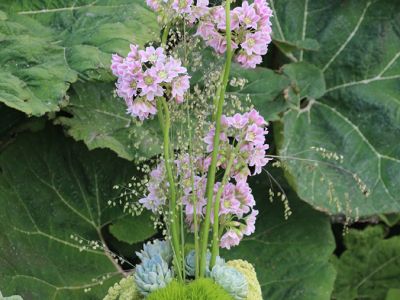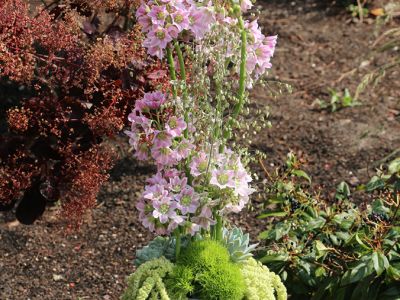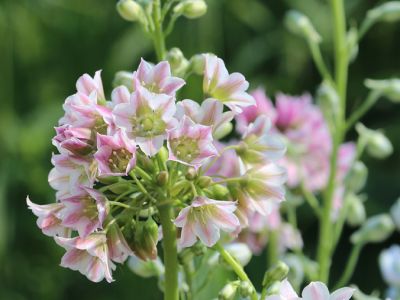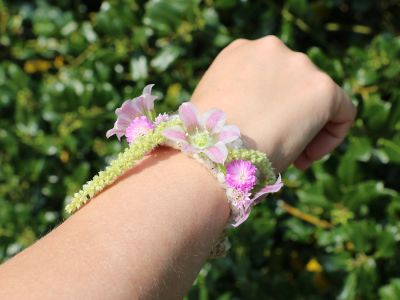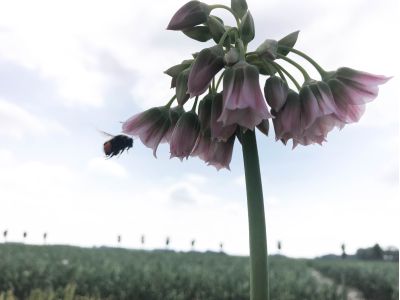Allium tripedale Rosy Bells
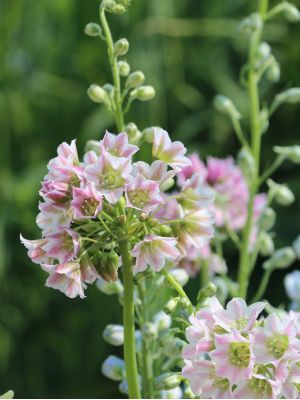
Calendar
In the spotlights
Large spheres, small spheres, spheres with bubbles, long stems and short stems. In white, yellow, pink and purple ... alliums! Wietse grows them all! Wietse Mellema from nursery Mts Mellema-Versteeg has 1000 different types of alliums at his nursery. All these varieties created a sight to see during a special visit.
Love and passion
Wietse started growing flowers at the age of 16. A grower with passion for his cultivation and love for his profession. His biggest challenge lies in discovering new varieties. Varieties that are exclusive, with an added value that people recognize and are willing to pay for.
He grows outdoors on large plots of land. Wietse grows different types of tulips on 15 hectares and on 2 hectares there are at least 1000 different types of alliums. And this is what we came for. Most species are used for breeding, his biggest hobby. Only 30 varieties are grown on a small scale for sale.
Wietse gets his onion bulbs from all over the world to be kept and maintained in its gardens. Some of these varieties do not reproduce themselves and are therefore only kept to complete the assortment.
Breeding
The breeding is largely outsourced. Nature itself does most of the work. Hundreds of bumblebees and bees roam the allium field; they play the most important role in crossing species. These hard workers have no eye for us visitors. They only have an eye for the nectar that is abundantly present in this garden. Various spontaneous seedlings come from these natural pollinations. "You immediately recognize the parents of the seedlings," Wietse answers the question on how he knows what crossings the bees create. Some of those seedlings are worth growing; others are too 'ordinary'.
As soon as he notices a special variety, Wietse tries to multiply it and he starts a test phase. Naturally, the flower must meet a number of conditions before it is actually propagated. For Wietse it is especially important that the species generates a profit. Breeding is a long process; it must be worth the effort. That is why only the most exclusive and innovative products are included in his range.
Thanks to the Mother Nature’s efforts, there are many pluckable species in the garden that are not suitable for propagation. Unfortunately, these species simply remain in the garden because you need time and manpower to organize everything. A "normal" purple allium is no longer that special. Wietse really does his best to develop special, crazy varieties that create a buzz on the market.
Ornamental onions
Alliums are beautiful flower bulbs. It is a large group of plants, also known as ‘sierui’ (‘ornamental onion’) or garlic. There is a reason we in the Netherlands mainly use the name 'sierui'. The allium is related to the onion and you can smell that. If you cut the stem diagonally and place it in the vase, you can smell the juice of the flower that smells like onions. It is therefore better not to place strongly scented alliums in a restaurant in a vase.
This colored family can also be a nice addition to your garden. Because there are so many varieties, you can choose between high and low, early and late flowering, sun and shade loving alliums. There is a suitable type for every garden.
In the spotlight
We have put a very nice variety in the spotlight this week: the Allium (nectaroscordum) Tripedale 'Rosy Bells'. It took 30 years before Wietse could actually bring this special variety to the market due to the difficult propagation. For example, a large part of the bulbs have already been lost, because in 2012 it froze much harder than usual during a couple of weeks than in normal Dutch winters. It turned out to be too much. It is also very difficult to germinate seeds of this allium. But Wietse persevered and now he knows how to handle this particular variety.
"Rosy Bells" is a very beautiful pink version, which will be accompanied by a white version in a few weeks. "Ivory Bells®" is a completely different flower but it looks the same. He bought this variety from a breeder. Of course we spotted it in Wietses garden and took some beautiful pictures.
What makes this variety special is the way they bloom. When the flower blooms, the flowers hang on the bulb like little bells. When they have finished flowering, they stand upright, making it look like they are buds, when in fact they are the faded flowers. You can also see this special inflorescence on the vase. If the flowers stay on the land, the flowers will form beautiful seed pods later in the season.
Rosy Bells and Ivory Bells® are a pure treat for bees and bumblebees. They constantly "leak" nectar, making them extremely attractive. This allium is actually a "nectaroscordum", but the species is ranked under allium. It is also called Bulgarian onion. These varieties are known to produce a lot of nectar. Just taste it! It is super sweet and tastes like a fresh flower.
When asked what makes this product so attractive to a florist, Wietse shifts the answer to the florist himself: "they know much better what they can do with this beautiful product." The flower has long stems and beautiful bells. For a florist it is certainly a real eye-catcher.
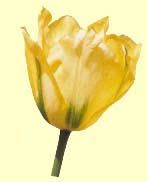
The cultivation
Our visit to Wietse was a visit by the book. We walked through a colorful, enchanting open field. The sun was abundant, making the colors stand out even more. This was further enhanced by the clear blue sky and the hard-working insects.
Nice cultivation
Breeding must be fun for Wietse. For him, cultivation is fun if it is exclusive and small-scale. If a product becomes too large and is therefore no longer interesting enough, he sells the product to someone who can enjoy it again. He has stopped his tulip breeding several times. If it gets too big and he produces a lot of stems of a particular variety, the challenge is over for him and he will pass on the crop. The allium with all its special varieties is therefore a very nice by-product for him. The cultivation is small-scale and you can really distinguish yourself with it. Wietse has become very well known for all his different varieties.
Long process
Allium is a bulb. The propagation from a bulb is a long process. The bulbs are very small in the first year and only start giving flowers after 4 to 7 years and only then it becomes clear what kind of surprise comes out. If the flower appears suitable, it enters a test phase to see if the quality is good enough and whether it is suitable for the market. The production is then increased. But it can actually take up to 25 years for a variety to come on the market.
Bulbs and cut flowers
Not all allium bulbs are grown for cut flower cultivation. Part of the production is for the more exclusive garden centers where they also sell flower bulbs. In addition, allium varieties are also available as perennials with rhizomes instead of bulbs. Here are also other shapes and colors that cannot be found in bulb growing. The trick is now to try to cross perennials with bulbs. It is now being investigated whether there are possibilities for this kind of crossing and that could well result in many other beautiful types of ornamental onions!
FloraPodium, 30 May 2019






